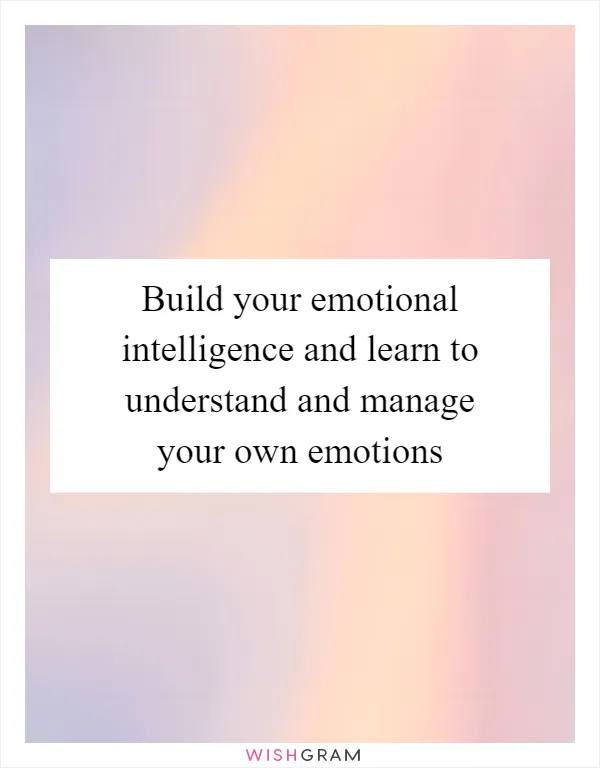Build your emotional intelligence and learn to understand and manage your own emotions
Emotional intelligence is a valuable skill that can greatly enhance our personal and professional lives. By developing emotional intelligence, we can better understand and manage our own emotions, leading to improved relationships, decision-making, and overall well-being.
Understanding our emotions is the first step towards emotional intelligence. It involves recognizing and acknowledging our feelings, whether they are positive or negative. This self-awareness allows us to identify the triggers that lead to certain emotions and understand how they impact our thoughts and behaviors.
Once we have a clear understanding of our emotions, the next step is to learn how to manage them effectively. This involves developing strategies to regulate our emotions and prevent them from overwhelming us. For example, when faced with a stressful situation, we can practice deep breathing or engage in activities that help us relax and calm down.
Another important aspect of emotional intelligence is empathy, which is the ability to understand and share the feelings of others. By cultivating empathy, we can better connect with people around us and build stronger relationships. This involves actively listening to others, trying to see things from their perspective, and showing genuine care and concern.
Developing emotional intelligence also means being able to express our emotions in a healthy and constructive manner. Instead of suppressing or bottling up our feelings, we can learn to communicate them effectively. This involves using "I" statements to express how we feel and avoiding blame or judgment towards others.
Furthermore, emotional intelligence helps us make better decisions by considering both our emotions and rational thinking. It allows us to weigh the impact of our emotions on our choices and consider the long-term consequences. By finding a balance between our emotions and logical reasoning, we can make more informed and thoughtful decisions.
Building emotional intelligence is an ongoing process that requires practice and self-reflection. It involves being open to feedback and continuously learning from our experiences. By investing time and effort into developing our emotional intelligence, we can enhance our self-awareness, improve our relationships, and lead a more fulfilling life.
